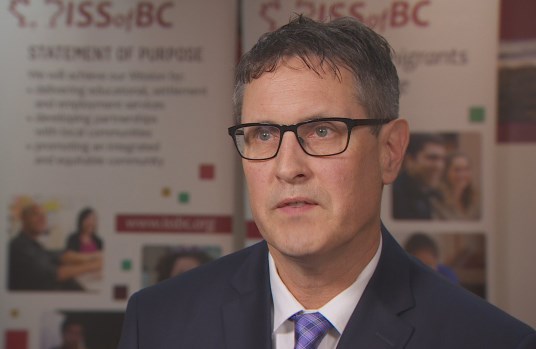Local community and church groups are opening their arms and wallets to provide homes for Syrian refugees, but the high cost of rent locally is preventing Richmond from accommodating a greater share of those fleeing their homeland for a new start in Canada.
Chris Friesen, director of settlement with Immigrant Services Society of B.C., told the Richmond News that B.C. is scheduled to take 10 to 12 per cent of the 25,000 refugees Canada has committed to take in before the end of the year.
The bulk of that figure — an estimated 900 — is expected to be housed in Surrey, with Coquitlam and Burnaby taking 600, Vancouver 300, and New Westminster 120. It has not been determined how many will come to Richmond. That will depend on how many affordable rental units can be sourced in the city. And with lofty real estate prices here, rents tend to follow suit, making it hard to find homes for refugee families, Friesen said.
“It’s all driven by trying to locate affordable housing on federal government income support rates,” Friesen said, adding they mirror provincial welfare figures.
“A family of four receives, $1,349 a month for food, shelter and transportation,” Friesen said. “So, in our emergency appeal last week that was our big ask — finding housing search leads.”
So far, that’s drummed up just over 460 potential properties from across the Lower Mainland. It’s not clear if any came from Richmond, but when asked if refugees are being priced out of the local market, Friesen said, “Absolutely. That’s why less than 10 per cent remain in Vancouver and the majority end up in Surrey. It’s driven by the available, low-cost rental market which is impacting the whole region.”
While he was unsure what the average cost of family-appropriate rental homes was in Richmond, Friesen said it was surely higher than welfare rates, which have not been adjusted since 2007. According to the Canadian Rental Housing Index, created by the B.C. Non-Profit Housing Association and Vancity Credit Union in 2014, the average rental, plus utilities, for a three-bedroomed house in Richmond was $1,344 a month, with renters having a household income averaging $53,577.
Nevertheless, only one Syrian family has managed to put down roots in Richmond since the start of 2015. How many will follow is unknown at this point. Another two, at least, are expected thanks to efforts by a pair of local churches.
Both Peace Mennonite Church and Gilmore Park United Church have been raising funds to sponsor one family each.
“It’s all systems go,” said Mark Fox, the transitional Lead Pastor at Peace Mennonite Church where the congregation has historical ties with refugees.
“Many come from a group, who particularly in Canada, came here in waves as refugees after the Second World War and in the 1920s and 1870s,” Fox said. “As a people who still have a connection with their Mennonite heritage, they have an idea of being a refugee, what it means.”
Over at Gilmore Park United Church, Rev. Maggie Watts-Hammond said her church has been approached by members of the local Syrian community, asking for assistance to bring their loved ones to Richmond.
“They are in refugee camps in Lebanon and elsewhere. But we’ve recognized we cannot bring in all of those who have approached us,” she said.
Most of those who are being considered for sponsorship have already undergone or are in the process of attaining UN recognition of refugee status, Watts-Hammond said.
“They are people with good skills, often with young families, but there are various other reasons why their situations can be complicated, as well,” she said.
Sometimes, if they have converted to another religion they may not be recognized legally. And their children may not have proper identity documents.
But offers to help refugees do not stop at providing them with a new home in Canada. Watts-Hammond said her congregation is also reaching out to send assistance overseas.
“The refugee camps are overwhelmed and one of the biggest needs, other than food and medical care, is for education for the children,” she said. “Lebanon has had to reduce their commitment to education in the camps purely for financial reasons. So, we’re also looking at fund-raising to sponsor a school in one of the refugee camps there.
“We can bring in one family. But for every one we help, there are many others who have to stay there. And there are many who want to go home. They don’t necessarily want to come to Canada,” she said. “They want safety for their children, but what they’d really love to do is go home.”
But many Lower Mainland residents do want to provide a home here and are offering space in their own homes to refugees, said Friesen.
“We have offers from families opening up their basement suites and rooms in their homes, so this may change the settlement pattern,” he said. “But until we know exactly how many (refugees) and when they will arrive, we will have a better idea.”
For those willing to house refugees in their own homes, Friesen said the society’s website (issbc.org) has a housing lead form they can complete.
“What we do then is analyze the information and process it kind of like an adoption,” he said. “We go in and do a site visit. If we’re placing a family with children, we will facilitate a criminal record check on the hosts and determine if the offer of a minimum three-month commitment is acceptable.”
In return, the home owner is granted the shelter allowance funding the refugee family would receive.



